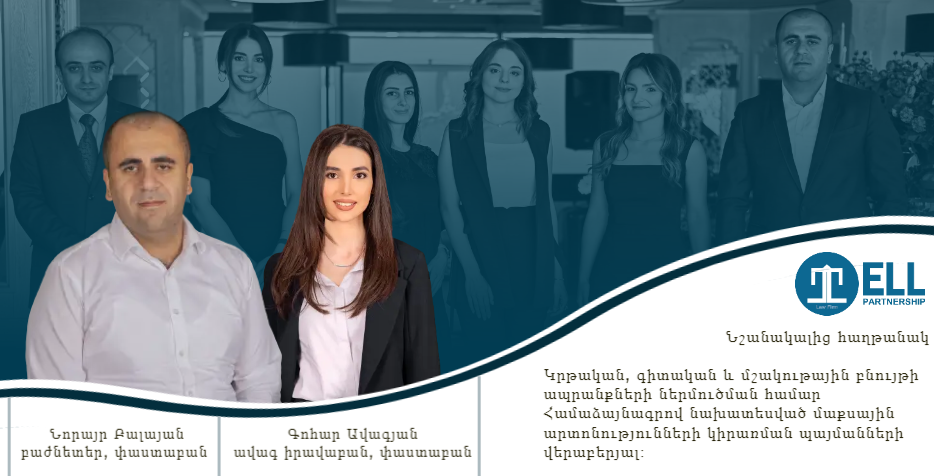An important victory in the context of the formation of judicial practice

On 04.05.2021, the post-clearance control department of the SRC of the Republic of Armenia drew up the act of outbound customs inspection No. 0017-A, the basis for which was the purposeful non-compliance of the use of goods imported into the territory of the Republic of Armenia by "PAPYRUS GLOBAL" LLC with the conditions set by the Agreement for the granting of privileges.
The legal team of our company, under the coordination of the domestic director-shareholder, attorney Norayr Balayan, taking over the protection of the interests of "PAPYRUS GLOBAL" LLC, submitted a lawsuit to the Court on 20.08.2021 with the demand to recognize the above-mentioned administrative act as completely invalid.
The basis of the demand was the systemic interpretation of the agreement "On the import of educational, scientific and cultural materials" and its preamble, RA Government Decision No. 122-N, from which it directly follows that the contested administrative act does not reflect the essence of the Agreement and is not aimed at the implementation of the goals of the Agreement , that is, by all direct and indirect means, to contribute to the widest possible distribution of educational, scientific and cultural materials, noting that the administrative body did not prove in any way that after alienating the product considered by the plaintiff to another person, the given person used the paper for purposes other than is the printing of educational, scientific and cultural materials.
The court highlighted whether the application of the customs privileges provided for in the Agreement for the import of educational, scientific and cultural goods is conditioned by the fact that the imported goods were later used for their intended purpose directly by the importer or were sold to other persons who later sold the imported goods used for its intended purpose.
That is, the Agreement stipulates its applicability to the fact that the materials will be used for their intended purpose after importation, regardless of who uses them for their intended purpose: the importer, directly, or a third party who acquired the material in question from the importer.
The court recorded that the fact that the educational, scientific and cultural product imported by the Company was used for purposes other than those declared in the Agreement was not substantiated in any way by the administrative body in the case. And the fact that the product has been alienated by another person, by itself, cannot be sufficient evidence to confirm the fact that the product was not used for its intended purpose.
This victory is especially important for the formation of judicial practice, because different interpretations given by the courts can be seen in similar court cases.
We congratulate our firm's legal team on achieving such a significant victory under the coordination of Norayr Balayan, our firm's lawyer Gohar Avagyan on his victory in the first court case and thank our Trustee for entrusting the protection of his rights and interests to our Office.



